Can a VPN Give You Virus? [Everything You Need to Know]
8 min. read
Updated on
Read our disclosure page to find out how can you help VPNCentral sustain the editorial team Read more
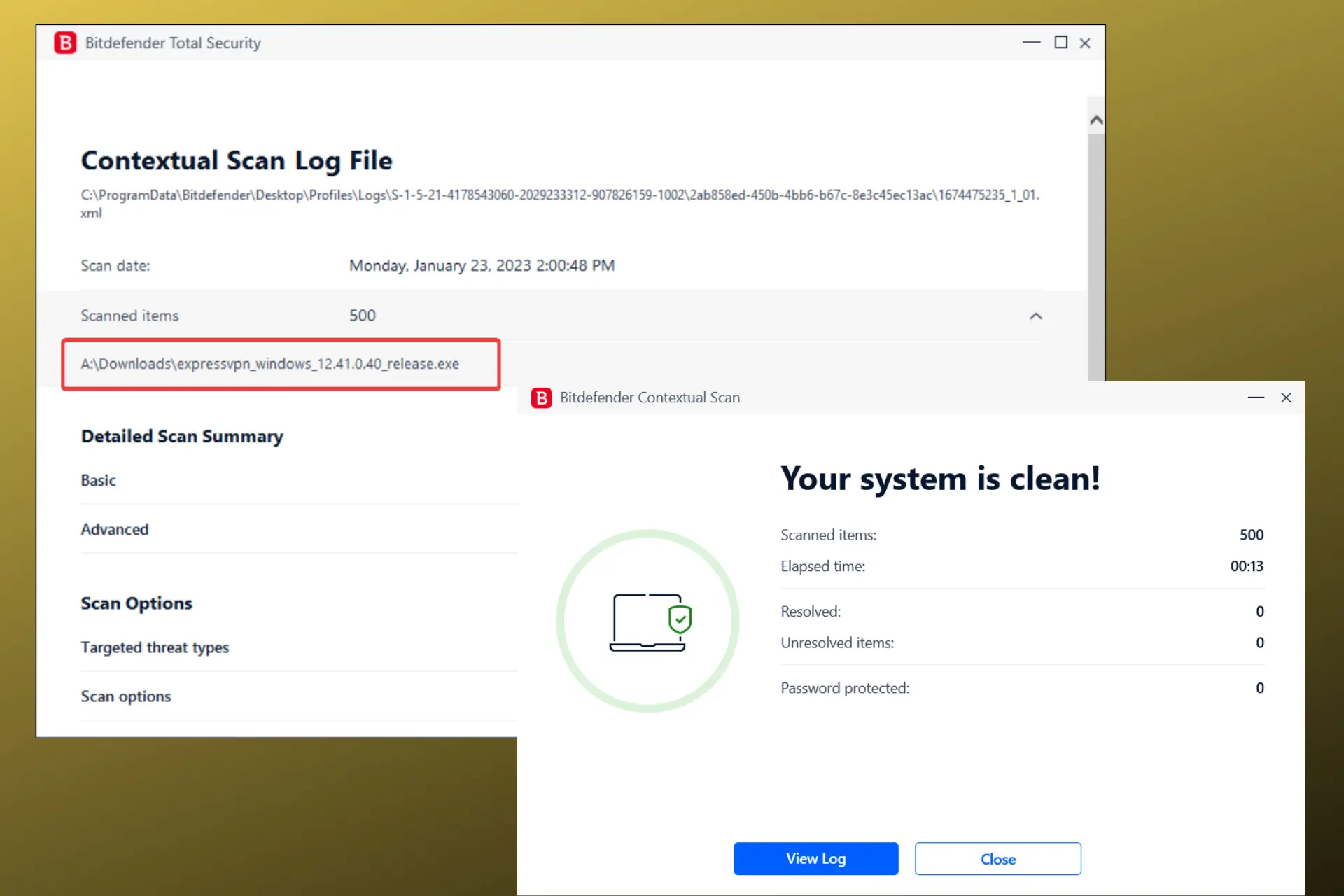
VPNs get a lot of credit for keeping your devices secure. But what exactly does that mean? Can you still get a virus when you connect to a VPN?
We know the good stuff about VPNs – they help you stay safe online by protecting your data from tracking and monitoring.
They also help you bypass restrictions and hide your IP address so your actual location remains unknown.
But how secure are they, really?
Can a VPN give you a virus?
No, a legit VPN service won’t give you a virus. However, they can be hacked and should not be used as a replacement for your antivirus.
Using a VPN doesn’t guarantee protection from these viruses as it only provides online security by encrypting your data and masking your IP address.
It may reduce your chances of getting a virus but it cannot hunt down or alert you whenever your device picks up a virus.
VPNs get a lot of praise for security but make no mistake. They don’t work as antiviruses. Read on to understand what a VPN can and cannot do in terms of security & privacy.
How to protect yourself from VPN viruses
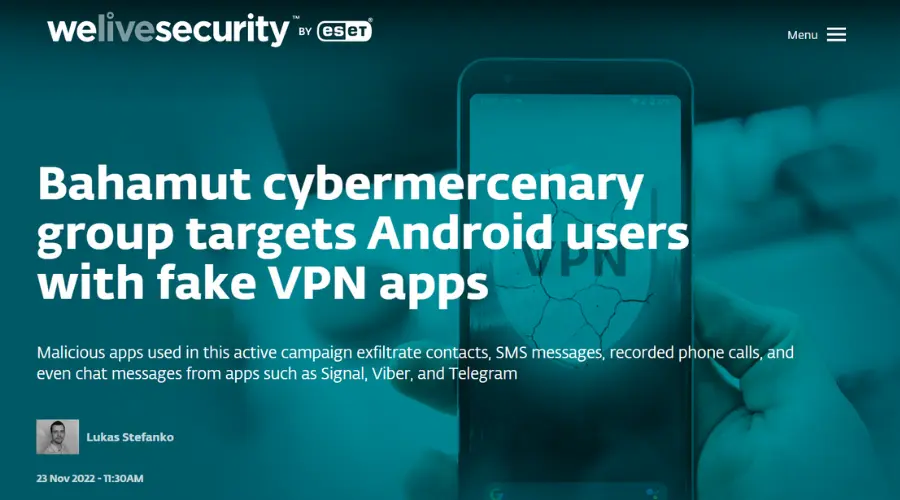
Image credit: ESET.com
Disturbingly, there have been instances when spyware was disguised as VPN apps in order to trick users into downloading them.
Obviously, they were not real VPN apps and did in fact give the user’s devices viruses. Those can compromise not only your data but your device entirely, making it potentially unusable.
This is a major reason why you should avoid using free software from random companies online. Read on to learn how to pick a truly secure VPN and how to configure it for maximum privacy.
How to select a reputable and trustworthy VPN provider
A VPN is the best way to protect your privacy online, but how do you decide which VPN provider to trust with your data and information?
Well, below are a few important factors to consider before choosing a reliable VPN provider:
1. Logging policy
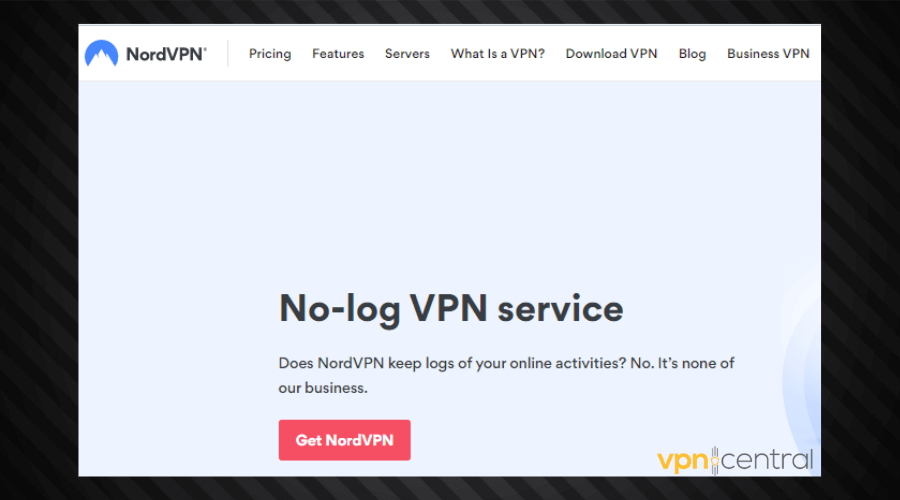
If your VPN data is not stored, there’s a lower chance of a unsecure connection giving you a virus.
Even if you access a public network with security issues that can get past the VPN encryption (unlikely), there’s not much vulnerable data in the first place.
However, keep in mind that some VPNs store and sell user information, especially free services.
They need to earn revenue to be able to continue paying for hosting and other services so as to continue running.
❗ If your VPN stores anything aside from basic information like email address and username, payment information, and optional diagnostic information, it’s a red flag.
VPNs with no log policies will delete all your browsing data at the end of each session. This will protect your privacy even in the unlikely event of your VPN service getting hacked.
2. Encryption level
The higher and more modern the encryption levels, the harder it is to break.
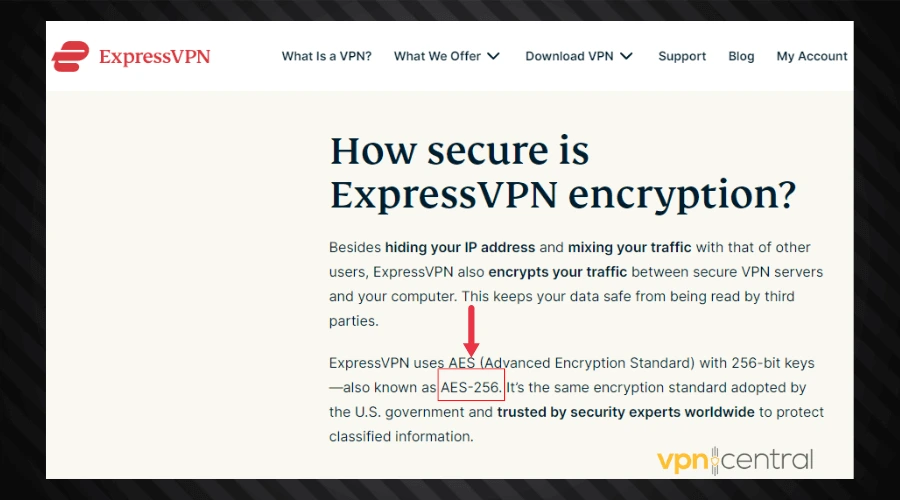
Go for a provider that offers 256-bit encryption as this is the standard for premium VPNs. Avoid outdated or obsolete algorithms like 3DES and 1024-bit RSA.
Also, watch out for proxies that pose as VPNs. Some of these products don’t offer any encryption at all, they just change your virtual location, but all traffic data is visible.
Stay away from services that don’t mention anything about encryption, as they may in fact not have it.
3. Leak prevention features
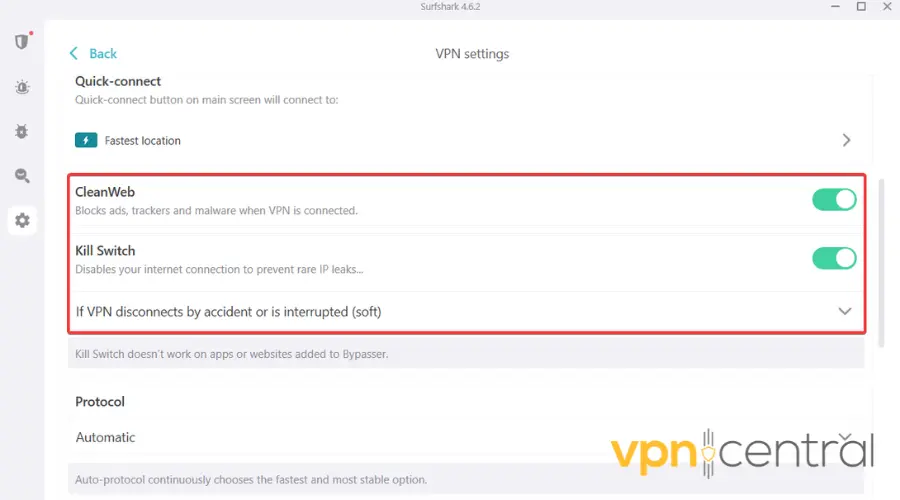
In addition to the encryption level, a reliable VPN provider should have other features like DNS leak protection, split tunneling, and an internet kill switch.
These features will make it suitable for activities like gaming, streaming on platforms like Netflix, torrenting, and P2P sharing.
Plus, it will ensure none of your data will be leaked or collected by your ISP.
4. Server network
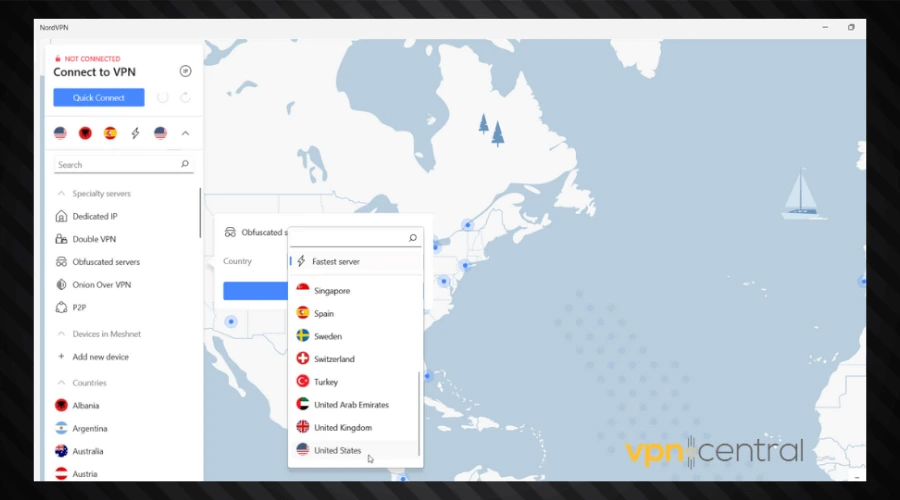
If your VPN has servers where the law requires activity logs, then they’ll have to comply. That’s why many VPNs decide to use virtual servers to protect data in India and other highly regulated countries.
Make sure you check what type of servers your VPN has in those locations and if there are any exceptions to their log policy.
Additionally, having a VPN with a large server base is best for privacy.
This will help against overcrowding on a particular server which may make connection difficult or cause sudden disconnections which expose your data.
5. VPN provider’s country of origin
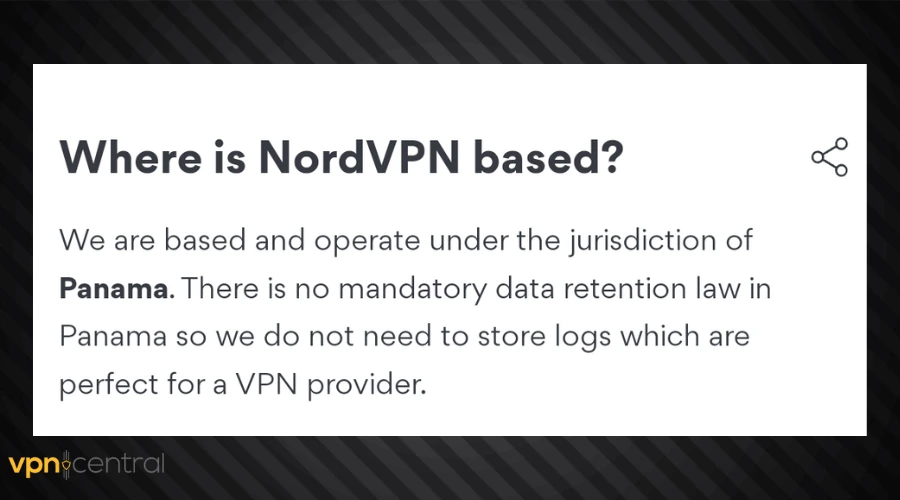
If you are big on staying anonymous online, then steer clear of VPNs with origins from any of the 14 Eyes countries.
The law binds VPN providers in these countries to log and turn over user data to the government.
The countries under the 14 Eyes include Canada, the UK, the US, Australia, New Zealand, France, Denmark, Norway, Germany, the Netherlands, Belgium, Spain, Italy, and Sweden.
Besides these, highly monitored countries like China and India have their own VPN services, but they’re not private at all, as they have to monitor user activity.
If you must connect to a server in any of these countries, use a VPN with a zero-logs policy.
6. Secure payment methods
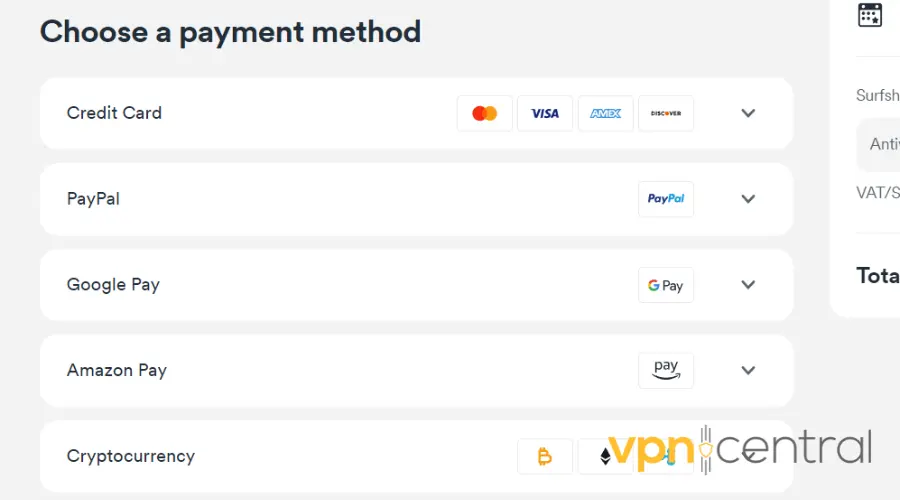
Your choice provider should accept different payment methods including PayPal, credit cards, and cryptocurrency payments in case you prefer to make anonymous payments.
Before you get your VPN, check their plan page to see which kinds of payments they accept, and don’t proceed until you’re sure there’s nothing sketchy about their options.
How to keep your devices safe while using a VPN
While connected to a VPN, here are a few tips to increase your security and keep your devices safe.
1. Use a secure protocol
Reputable VPN apps let you pick your connection protocol. Most of them do a great job of offering only secure options.
However, according to many security experts, OpenVPN is better for security than other protocols. Avoid obsolete options such as PPTP.
Most VPN apps make changing protocols really easy:
- Open your VPN and go to Settings.
- Navigate to the Connection Protocol option.
- Pick OpenVPN and click OK to save your settings.
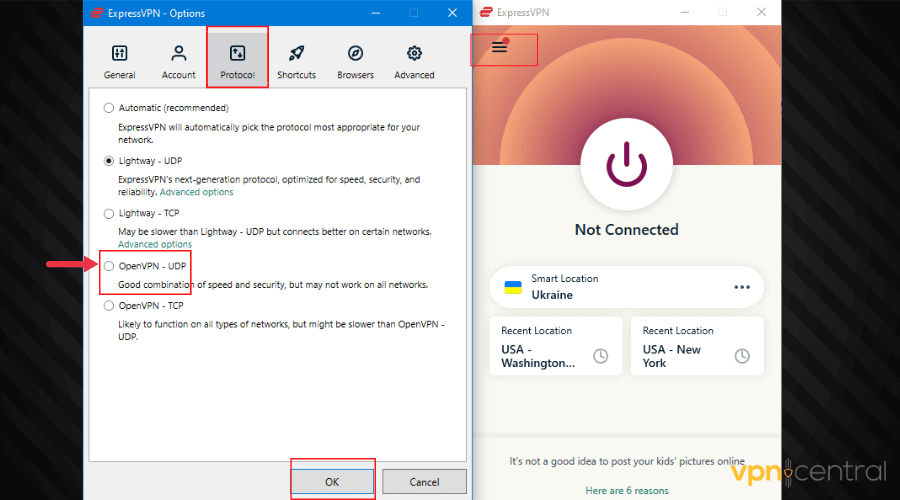
2. Stop DNS leaks
Enable DNS leak protection in your VPN if it is not on by default.
This will prevent your device from sending DNS requests through your ISP DNS servers, thereby protecting your search requests.
The steps to do this are simple:
- Open your VPN and go to Settings.
- Enable DNS leak protection and close the page.
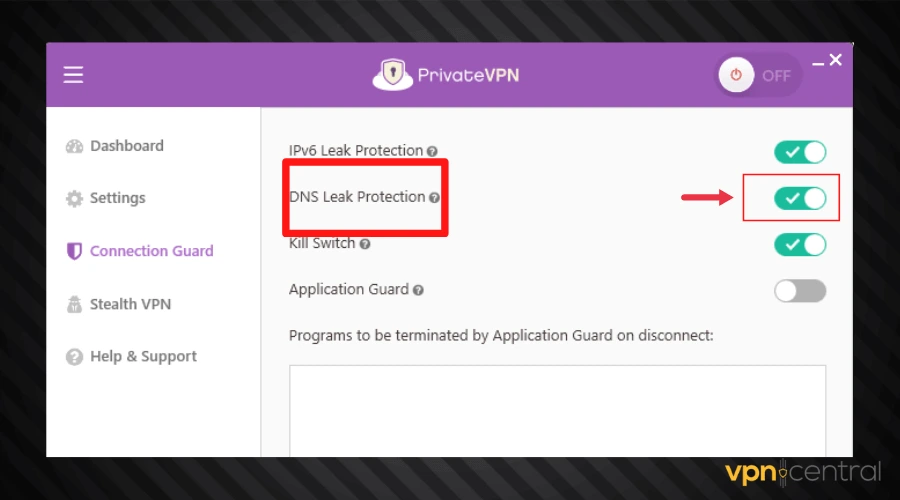
- Connect to a server.
3. Enable the kill switch
VPN kill switches are designed to take you offline the moment your connection drops.
This helps to ensure the protection of your internet activity by restricting internet access until your VPN connection is reestablished.
To do this, follow these steps:
- Open your VPN and go to Settings.
- Enable DNS leak protection and close the page.

- Connect to a server.
4. Enable 2FA
This will ensure that your VPN account remains secure in a situation where your password is compromised.
Here is how to enable this feature:
- Log into your VPN web dashboard through your browser.
- Scroll down until you find the option to enable the setting.
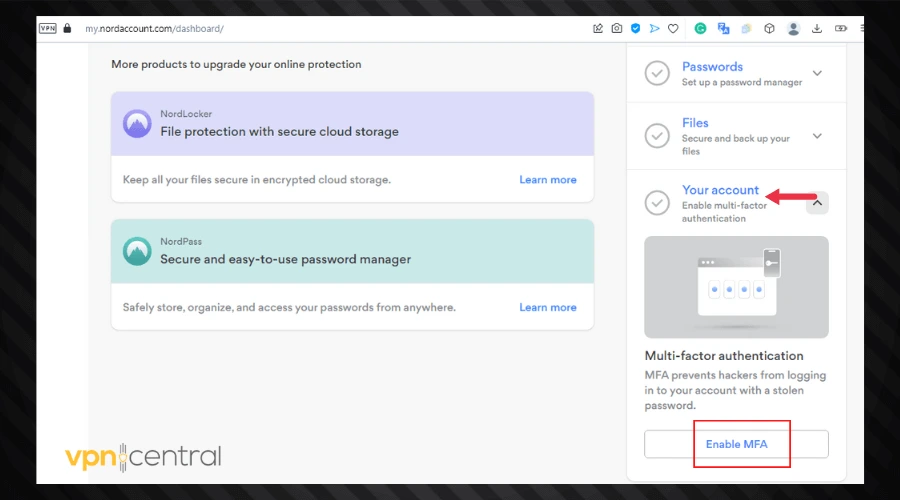
- Follow the instructions to complete the setup.
5. Use VPN on all devices
If you log in to the same accounts and sync your data across devices, you should use a VPN on all of them.
Otherwise, even if you use a VPN when you log on to your Google Account on your PC, it can still be vulnerable if you don’t do the same on your mobile.
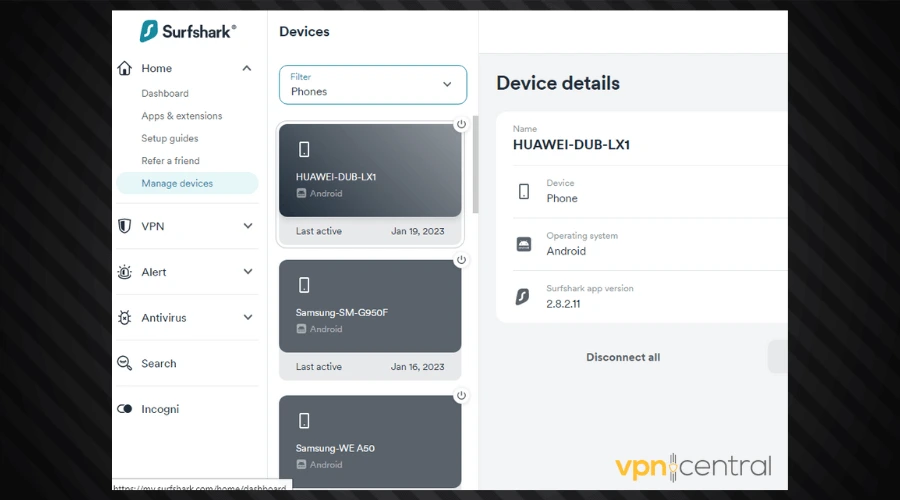
In order to protect your other devices that connect to the internet, you must download VPN software on each one.
Alternatively, you can also install the VPN on the router and secure your entire household. This way, all devices connected to your home network will be automatically connected to VPN, even without an app.
6. Watch out for suspicious websites
VPNs don’t work as antiviruses and should not be used as such.
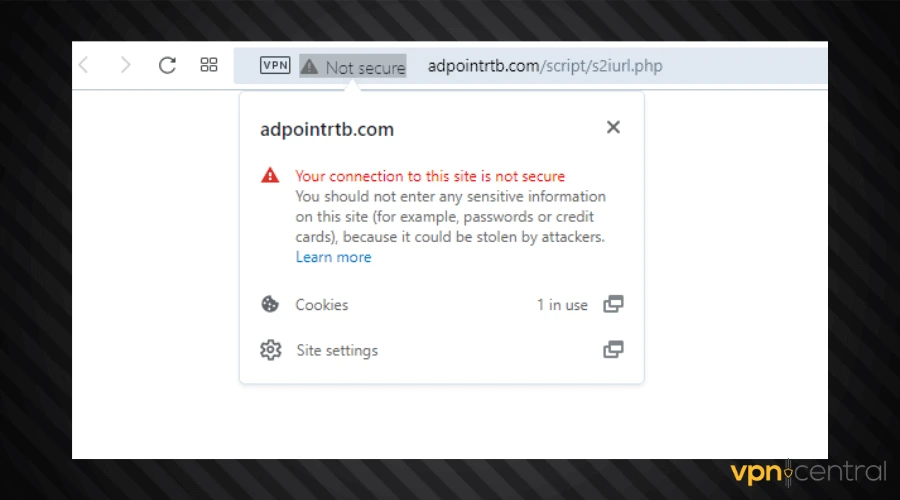
When connected to a VPN, you still need to be conscious of visiting suspicious sites, clicking tricky links, and downloading suspicious files, especially via torrents and P2P networks.
Some VPNs prevent access to flagged websites, but none of them is foolproof. Pay attention to the links you click on and always make sure your antivirus is also running whenever you’re online.
Should you use antivirus software with your VPN?
Yes, you should absolutely use antivirus software with your VPN.
Enabling antivirus software will protect your device, monitor suspicious activities, and regularly scan for potential threats.
Antiviruses have up-to-date databases of all upcoming threats and are quick to identify them, especially on the web.
On the other hand, a VPN solely focuses on protecting user data and encrypts the information that passes through your devices.
Using an antivirus program with your VPN will ensure all-around protection of your identity as well as your devices from bugs, viruses, and other malware.
Read more:
Conclusion
Staying away from suspicious websites and not clicking just about any link reduces the risk of getting viruses.
The best option is to use both VPN and antivirus to protect your device from all sorts of cyber-attacks.
We hope we managed to answer all the questions you may have had and now you know whether a VPN can give you a virus or not.







User forum
0 messages